Raccoons are attracted to houses by easily accessible food sources and potential shelter. These animals are drawn to the presence of garbage, pet food, and open containers that contain food, as well as structures like chimneys, attics, and sheds that offer protection and warmth.
Additionally, gardens and yards with abundant vegetation can also attract raccoons by providing them with a source of water, fruits, and vegetables. It is important to eliminate these attractants and secure any potential entry points to prevent raccoons from becoming a nuisance or causing damage to your property.
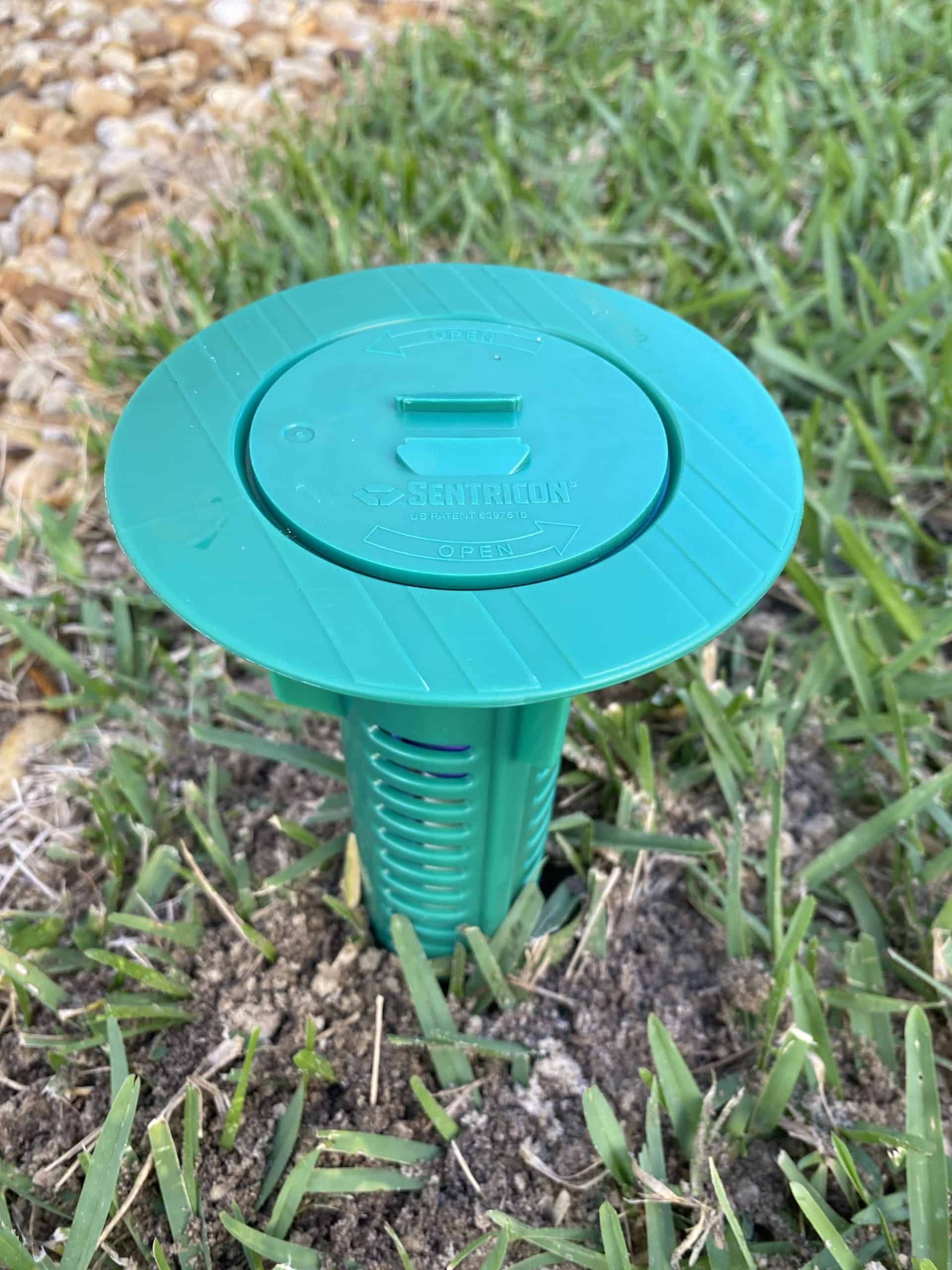
Credit: www.davespestcontrol.com
The Behavior Of Raccoons: Understanding Their Natural Instincts
Raccoons are drawn to houses by easy access to food, shelter, and water. Understanding their natural instincts can help identify and address these attractions, such as securing garbage cans and sealing any potential entry points into your home.
Raccoon Habits And Characteristics:
- Raccoons are known for their agile behavior and dexterous paws, which allow them to explore various environments.
- These intelligent creatures have a highly adaptable nature and can adjust to urban, suburban, and rural habitats.
- Raccoons are nocturnal animals, primarily active during the night, but they can also be spotted during the day if food sources are scarce.
- They have a varied diet, consisting of both plant-based and animal-based foods. This omnivorous nature makes them resourceful scavengers.
- Raccoons are opportunistic feeders and can raid trash cans, gardens, and even pet food left outdoors.
- Their curious and inquisitive nature often leads them to explore chimneys, attics, and crawl spaces in search of shelter or nesting sites.
Exploring The Nocturnal Nature Of Raccoons:
- Raccoons are well adapted to the darkness, thanks to their excellent night vision.
- Their sensitive sense of touch, found in their front paws, helps them navigate and manipulate objects in low light conditions.
- Being primarily nocturnal animals, raccoons are more active when human activity decreases, allowing them to move around with reduced risk.
- The cover of darkness provides raccoons with a level of protection from potential predators and human disturbances.
- They exhibit a higher level of comfort and confidence when foraging during nighttime hours, relying on their keen senses to locate food sources.
- The quieter ambiance of the night is also more suitable for their cautious and stealthy nature, allowing them to avoid detection more easily.
The Curiosity Factor: How Raccoons Investigate Their Surroundings:
- Raccoons are naturally curious creatures, motivated by their innate desire to explore and investigate their environment.
- They use their front paws, which possess sensitive touch receptors, to examine objects and manipulate them with remarkable agility.
- Their curious nature extends to their sense of smell, as they can detect scents up to 20 miles away, aiding them in locating potential food sources.
- Raccoons are known to wash their food before consuming it. This behavior is not related to cleanliness but rather a way to enhance their tactile stimulation.
- They are capable of solving complex problems and can remember successful strategies to access food, even over extended periods.
- The ability to adapt and learn quickly allows raccoons to successfully navigate various obstacles, finding ways to reach their desired targets.
By understanding the natural instincts and behavior of raccoons, we can better comprehend what attracts them to our homes and take proactive measures to minimize any potential conflicts. Remember, prevention is key when it comes to dealing with raccoons and ensuring the safety and wellbeing of both humans and wildlife.
Please note: it is important to consult with local wildlife authorities or professionals for the humane and ethical management of raccoon issues.
Understanding The Attraction: Common Food Sources For Raccoons
Raccoons are attracted to your house by common food sources. Understanding their preferences can help prevent them from becoming a nuisance.
Raccoons are clever creatures known for their resourcefulness when it comes to finding food. Whether you live in a suburban neighborhood or a rural area, it’s essential to understand what attracts raccoons to your house. By knowing their common food sources, you can take necessary steps to prevent these masked bandits from causing trouble.
Let’s explore some of the key attractants in detail.
Trash Goes Wild: Raccoons And Garbage Cans
Raccoons have a knack for rummaging through trash cans in search of scrumptious snacks. Here’s why your garbage cans may be enticing them:
- Leftovers galore: Raccoons are drawn to the odor of leftover food, whether it’s from last night’s dinner or discarded scraps.
- Easy access: These nimble critters can easily pry open loosely fitted lids or knock over poorly secured garbage cans.
- Buffet in the dark: Raccoons are primarily nocturnal, making the cover of darkness the perfect time to feast on your trash.
To prevent raccoons from becoming regulars at your garbage buffet, consider these preventive measures:
- Invest in raccoon-proof trash cans, which are designed to be difficult for raccoons to access.
- Double-bag your trash to minimize or eliminate odors that might attract raccoons.
- Place your trash cans in a secure area, such as a garage or shed, until garbage pickup day.
Gardens And Bird Feeders: A Raccoon’S Delight
If you have a flourishing garden or regularly feed birds, you may unintentionally be luring raccoons to your property. Here’s why raccoons find these habitats irresistible:
- Vegetable gardens: Raccoons have a taste for garden-fresh produce, especially ripe fruits and vegetables.
- Bird feeders: The seeds and bird food in your feeders can attract raccoons looking for an easy meal.
To safeguard your garden and bird feeders:
- Install a fence around your garden or use individual plant protectors to keep raccoons out.
- Invest in raccoon-proof bird feeders designed to prevent access by larger animals.
- Clean up fallen seeds or bird food regularly to minimize attractants.
The Untold Story: Pet Food As Raccoon Bait
Your furry friends’ food can unwittingly entice raccoons too. Here’s why pet food may be tempting for them:
- Constant availability: Leaving pet food outdoors or accessible through a pet door gives raccoons the opportunity to help themselves.
- Nutritional value: Raccoons are opportunistic feeders and can easily satisfy their dietary needs with pet food.
To prevent raccoons from dining alongside your pets:
- Only feed your pets indoors and remove any uneaten food after they finish.
- If you must feed your pets outside, monitor them closely and bring their food bowls back indoors once they are done eating.
By understanding these common food sources for raccoons, you can take proactive steps to minimize their attraction to your house. With raccoons searching elsewhere for sustenance, you’ll have a better chance of keeping these curious creatures at bay. Stay tuned for our next blog post, where we’ll explore effective methods to deter raccoons from your property.
Environmental Factors: Creating An Inviting Habitat For Raccoons
Creating an inviting habitat for raccoons involves understanding the environmental factors that attract them to your house. Factors like easily accessible food sources, shelter, and water can make your property a target for these curious creatures. Taking steps to eliminate attractants can help prevent raccoons from becoming unwelcome visitors in your home.
The Perfect Hideout: Raccoons And Overgrown Vegetation
Raccoons are known for their adaptability and resourcefulness when it comes to finding shelter. One common environmental factor that attracts raccoons to your house is overgrown vegetation. Here are some reasons why raccoons consider overgrown vegetation as the perfect hideout:
- Ideal hiding spot: Overgrown bushes, shrubs, and trees provide raccoons with ample hiding spots away from predators and human interference.
- Protection from weather: Thick vegetation offers raccoons protection from harsh weather conditions, such as heavy rain, strong winds, and intense heat.
- Easy access to food: Overgrown vegetation often harbors insects, grubs, and other small creatures that raccoons feed on, making it a convenient food source near their hiding place.
- Breeding and nesting opportunities: Raccoons are attracted to overgrown vegetation as it offers them suitable spots for breeding and nesting. The dense foliage provides privacy and security for raising their young.
Water Sources: Raccoons And Their Need For Hydration
Like any other living creature, raccoons require a reliable water source to survive. Here’s how their need for hydration can attract them to your house:
- Ponds, pools, and birdbaths: Raccoons are drawn to standing water sources, such as ponds, pools, and birdbaths, for drinking and bathing.
- Leaky pipes and faucets: Raccoons can detect the sound of dripping water, which prompts them to investigate potential water sources, including leaking pipes and faucets.
- Outdoor pet dishes: If you leave pet food and water bowls outside, raccoons may be enticed by the accessible water supply. Ensure you bring them inside at night to deter raccoon activity.
- Rainwater collection systems: Raccoons are attracted to rainwater collection systems, as they provide a consistent water source, especially during drier periods.
Home Sweet Home: Human Structures And Raccoon Nesting
Raccoons are opportunistic creatures that can adapt to urban environments, and they often find comfort in human-made structures. Consider the following factors that make your house appealing to raccoons:
- Attics and crawl spaces: Raccoons are skilled climbers and can easily access attics and crawl spaces. These dark, warm, and secluded areas serve as ideal nesting sites where raccoons can give birth and raise their young.
- Garages and sheds: Raccoons may seek shelter in garages and sheds where they can find a safe and secluded space away from potential threats.
- Patio furniture and deck spaces: Raccoons can use the gaps and crevices in patio furniture and deck spaces as cozy resting spots, particularly during the daytime when they prefer to hide.
- Unsecured trash cans: Garbage can be an attractive food source for raccoons. Easy access to unsecured trash cans provides them with a reliable food supply, prompting them to build nests nearby for convenience.
By understanding these environmental factors that attract raccoons to your house, you can take the necessary precautions to make your property less inviting.
Natural Predators: Impact On Raccoon Behavior And Attraction
Raccoons are commonly attracted to houses due to the availability of food, water, and shelter. Understanding their natural predators can help in managing their behavior and reducing their attraction to your property. By addressing these factors, you can create an environment that discourages raccoons from frequenting your house.
Raccoons are intelligent creatures that can adapt to various environments. However, their behavior is greatly influenced by the presence of natural predators. Understanding the role of predators in raccoon reproduction and their impact on the ecosystem balance can help homeowners better understand why raccoons are attracted to their houses.
Additionally, the potential threat posed by outdoor pets adds another layer of complexity to the issue.
The Role Of Predators In Raccoon Reproduction:
- Predators play a crucial role in maintaining the raccoon population by keeping their numbers in check.
- Natural predators, such as coyotes, foxes, and bobcats, prey on raccoon pups and weak adults.
- The fear of predation can influence raccoon behavior, making them seek shelter in human-made structures, including houses.
- Raccoons are attracted to the safety and protection that a house can offer, as it acts as a barrier against their natural predators.
The Ecosystem Balance: How Predator-Prey Relationships Influence Raccoon Behavior:
- The presence of natural predators helps maintain the delicate balance within eco-systems.
- Raccoons, as prey animals, have evolved to be cautious and resourceful in order to survive.
- The constant threat of predation forces raccoons to adapt and find alternative food sources, including scavenging for human waste.
- However, the availability of food and shelter in residential areas can tip the balance in favor of raccoons, leading to increased raccoon activity around houses.
Outdoor Pets: A Potential Threat To Raccoons:
- Outdoor pets, such as cats and dogs, can pose a potential threat to raccoons.
- Raccoons are known carriers of diseases, such as rabies, and can transmit them to pets through direct contact or fights.
- The presence of outdoor pets can deter raccoons from entering a property, but it can also lead to confrontations and territorial disputes.
- Raccoons may be attracted to easy access to pet food left outdoors, further increasing their presence around houses.
Understanding the impact of natural predators on raccoon behavior and attraction can help homeowners take appropriate measures to discourage raccoons from frequenting their properties. By addressing potential attractants, such as food sources and access points, homeowners can minimize the risk of raccoon infestations and maintain a peaceful coexistence with these fascinating creatures.
Remember, raccoons are resourceful and adaptable, so it is important to consult local authorities or wildlife professionals for humane solutions if raccoon issues persist.
Preventing Raccoon Intrusions: Effective Deterrents And Solutions
Discover effective deterrents and solutions to prevent raccoon intrusions in your home. Learn what attracts raccoons and take action to keep them away with these helpful tips.
Raccoons are clever creatures and can be attracted to various elements of your house. Preventing them from intruding on your property is the key to avoiding potential damage and disturbances. In this section, we will explore three effective deterrents and solutions to keep raccoons at bay.
Keep It Clean: Proper Waste Management To Deter Raccoons:
- Secure your trash cans: Ensure that your trash cans have tight-fitting lids or consider investing in raccoon-proof bins. Raccoons are notorious for rummaging through garbage in search of food.
- Regularly dispose of food waste: Avoid leaving food scraps or leftovers outside. By eliminating potential food sources, you reduce the likelihood of attracting raccoons.
- Use compost bins with tight lids: If you have a compost bin, make sure it is securely closed to prevent raccoons from accessing it. Wildlife-friendly composting methods can help deter raccoons while benefiting the environment.
Fortress For Your Garden: Fencing Options To Keep Raccoons At Bay:
- Install sturdy fencing: Erecting a strong and tall fence around your garden can discourage raccoons from entering. Opt for materials like metal or heavy-duty wood that are difficult for raccoons to climb.
- Bury the bottom of the fence: Raccoons are proficient diggers, so it’s important to bury the bottom of the fence or secure it with an underground barrier. This prevents raccoons from burrowing beneath the fence to access your garden.
- Add deterrents to the fence: Consider adding deterrents like electric wires or mesh netting to the top of the fence. These physical barriers can deter raccoons from attempting to climb over.
Lights On! The Role Of Illumination In Raccoon Deterring Tactics:
- Install motion-sensor lights: Raccoons are primarily nocturnal creatures, and bright lights can deter them from approaching your property. Install motion-sensor lights around your house and in areas frequented by raccoons.
- Use strategically placed spotlights: Position spotlights near potential entry points such as attics, crawl spaces, or garbage areas to discourage raccoons from approaching. Bright lights make raccoons feel exposed, making them less likely to linger or attempt to gain access.
- Consider using motion-activated sprinklers: Another effective deterrent is to install motion-activated sprinklers in your yard. When triggered by movement, these sprinklers release a sudden burst of water, startling raccoons and deterring them from lingering.
By implementing these preventative measures, you can create an environment that is unattractive and inhospitable to raccoons. Remember, consistency is key, so ensure all household members are aware of these deterrent tactics and practice them consistently.
Human-Raccoon Interaction: Ethics, Guidance, And Responsible Actions
Discover the factors that attract raccoons to your home and learn how to handle human-raccoon interaction responsibly, considering the ethics and guidance to ensure a safe coexistence.
Reducing Conflicts: Understanding Raccoons And Their Place In The Urban Environment
Raccoons are fascinating creatures that have adapted well to urban environments. Understanding their behavior can help reduce conflicts and promote peaceful coexistence. Here are some key points to keep in mind:
- Raccoons are opportunistic omnivores: They have a diverse diet that includes fruits, vegetables, nuts, insects, small vertebrates, and even garbage. Their adaptability to different food sources contributes to their success in urban areas.
- Natural habitats are dwindling: As urbanization continues, raccoons have lost their natural habitat. Instead, they are forced to seek shelter in attics, basements, and other human-made structures. It’s important to remember that they are just trying to survive and find a safe place to live.
- Respect their nocturnal nature: Raccoons are primarily nocturnal animals, meaning they are most active at night. This behavior can sometimes lead to conflicts if they disturb people’s sleep or create a mess in residential areas. Understanding their nocturnal habits can help minimize such issues.
- Raccoons are curious and intelligent: These intelligent creatures are known for their problem-solving abilities. They can open doors, lids, and containers, so securing trash cans and blocking access to potential entry points in your house is essential.
Share Our Space: Coexistence Strategies And Ethical Behavior
Living alongside raccoons in urban areas requires responsible actions and ethical behavior. By following these strategies, you can create a harmonious coexistence:
- Secure trash cans and compost: Raccoons are attracted to easily accessible food sources. Ensure that your trash cans have tight-fitting lids and avoid leaving food waste in open compost piles.
- Remove outdoor food sources: Raccoons are known to frequent bird feeders, pet food left outside, and fallen fruits from trees. Removing these temptations can discourage raccoons from spending time near your house.
- Create deterrents: Employing scare tactics such as motion-activated lights, sprinklers, or even hanging aluminum pans can deter raccoons from frequenting certain areas.
- Educate your neighbors: Sharing knowledge about raccoon behavior and the importance of responsible actions can help create a collective effort in reducing conflicts.
Seeking Professional Help: When And How To Contact Wildlife Control Experts
Sometimes, despite our best efforts, conflicts with raccoons can escalate and become difficult to manage on our own. In such cases, seeking professional help from wildlife control experts is the best course of action. Consider the following:
- Signs of extensive damage: If raccoons have caused significant damage to your property, such as gnawed wires or insulation, it’s best to call professionals who can assess the situation and provide appropriate solutions.
- Persistent raccoon presence: If raccoons keep returning to your property despite your efforts to deter them, it may be necessary to consult wildlife control experts. They have the knowledge and experience to handle raccoon removal humanely.
- Local regulations and permits: Ensure that you are aware of any local regulations or permits required before contacting wildlife control experts. Following the appropriate guidelines will help ensure a legal and ethical resolution.
Remember, raccoons are an essential part of our ecosystem and deserve our respect and understanding. By implementing coexistence strategies and seeking professional help when necessary, we can maintain a harmonious balance between humans and raccoons in the urban environment.
Frequently Asked Questions For What Attracts Raccoons To Your House
How Do I Know If There Is A Raccoon In My House?
If you notice strange noises like scratching or thumping sounds, torn insulation or damaged vents, or find droppings in your attic or basement, it’s likely that a raccoon has taken up residence in your house.
What Are The Common Attractants For Raccoons?
Raccoons are attracted to easily accessible food sources such as garbage cans, pet food left outside, bird feeders, and compost piles. They are also drawn to areas with shelter, such as trees, dense vegetation, and uncapped chimneys.
How Can I Prevent Raccoons From Coming To My House?
To prevent raccoons from coming to your house, make sure to secure your garbage cans with tight-fitting lids, bring pet food inside at night, install metal baffles on bird feeders, keep your yard clear of food sources, trim tree branches away from your house, and inspect and repair any potential entry points.
Conclusion
It is important to understand the factors that attract raccoons to your house in order to effectively prevent their presence. By addressing issues such as accessible food sources, secure garbage bins, and sealing potential entry points, you can minimize the likelihood of raccoons visiting your property.
Maintaining a clean and tidy yard, trimming overgrown vegetation, and removing potential shelters can also discourage raccoons from setting up their habitats near your home. Remember to securely store pet food and bird feeders, which can act as magnets for raccoons.
Additionally, it is advisable to consult with professionals for a comprehensive assessment of your property and installation of wildlife deterrents, if necessary. Taking proactive measures to deter raccoon activity will help ensure a peaceful coexistence with these wild creatures while safeguarding your property from potential damage.

“My name is Leo Jacob, and I hold a Bachelor of Science degree with Honors in Applied Environmental Science and Sustainability from the University of the West of Scotland. Since childhood, I’ve been passionate about living an eco-friendly life. After completing my studies, I dedicated myself to finding simple ways to lead a more environmentally conscious lifestyle. I launched ecolifely.com to share my educational background and practical experiences with everyone, hoping to inspire others to join me in creating a greener, more sustainable world.”

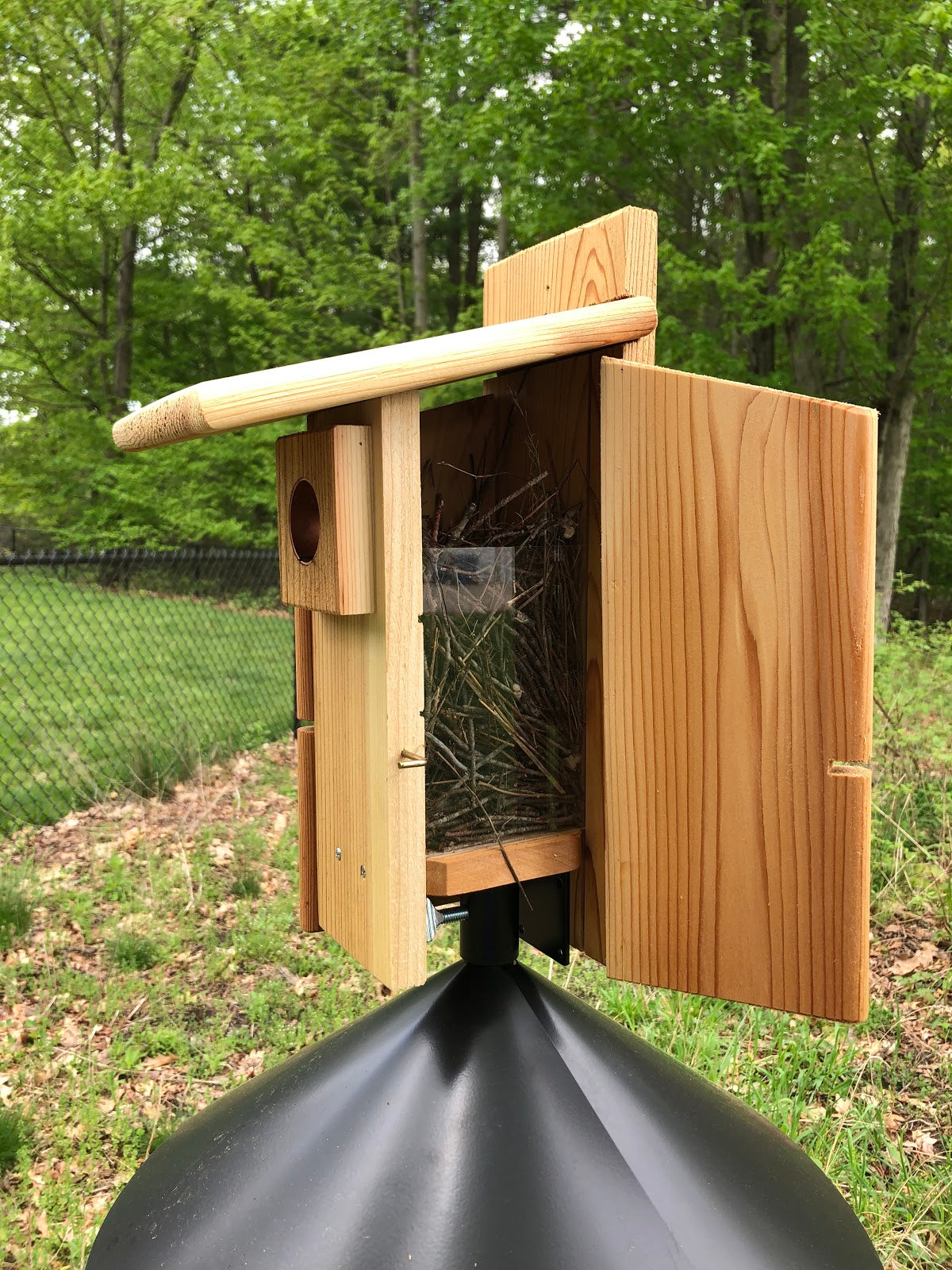
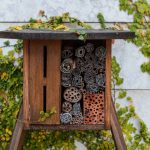

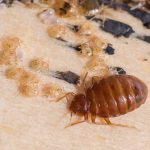
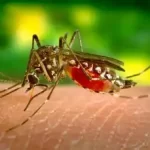







Leave a Reply